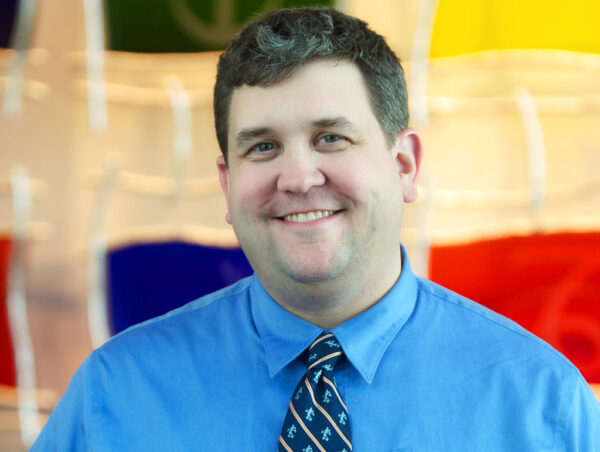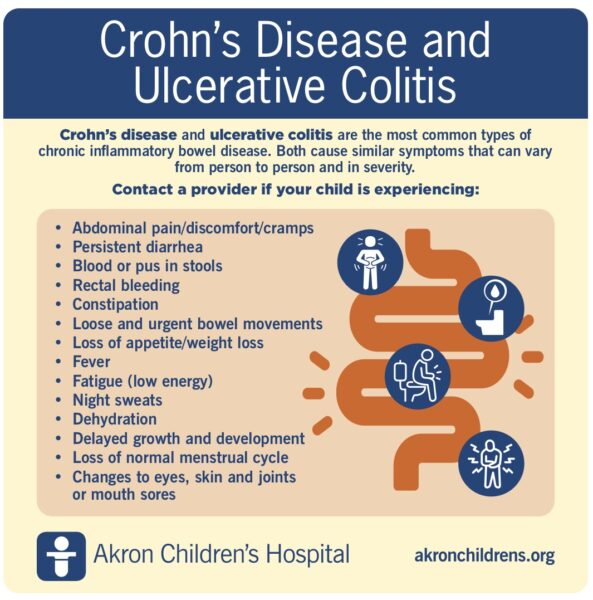
Brendan learned earlier on how to navigate life with his Crohn’s disease by keeping up with medicine, regular checkups and watching his diet.
Children learn in different ways – some by seeing, hearing or reading and others by doing. When a child is diagnosed with a chronic illness like Crohn’s disease or ulcerative colitis, learning by living with the disease is a life-long process.
For Brendan, who was diagnosed with Crohn’s disease at age 9, he doesn’t remember receiving ‘bad news’ that he had Crohn’s, rather he remembers meeting with Matthew Wyneski, MD and his Akron Children’s gastroenterology team who taught him how to feel better.

Matthew Wyneski, MD is a pediatric gastroenterologist at Akron Children’s where he treats all types of gastrointestinal, liver and pancreas disorders such as celiac disease, gastroesophageal reflux, inflammatory bowel disease, hepatitis and pancreatitis.
“I grew up seeing the same staff members at each visit and they showed me what I should eat or foods to avoid, explained how my medicine worked and gave me encouragement that I was doing a good job,” said Brendan. “I’m now transitioning to an adult care provider and I feel like they’re still teaching me things like the importance of advocating for myself and listening to my body because the disease can change over time.”
Inflammatory bowel disease (IBD) can take on a number of forms, with Crohn’s disease and ulcerative colitis being the most common, and cause a variety of and severity of symptoms. The earlier diagnosis and treatment begins, the better patients are able to deal with the stress that can come with managing a chronic illness.

Many kids can find living with IBD challenging to navigate. They can struggle with poor self-image, depression or anxiety. Helping a child build early habits of taking medicine regularly, watching their diets and managing stress in positive ways such as with yoga, music or art can help.
“I was lucky that after my initial testing, it was clear what my diagnosis was so we had a plan to treat it right away,” said Brendan. “I learned pretty quick that I needed to watch my diet and take the right dosage of my medication to keep me feeling my best and not miss out on anything my friends were doing.”
As kids get older, learning to take responsibility for their care by knowing all their medicines, dosages and when to take them, common side effects, and if they have allergies to food or medicine can help build confidence. When transitioning to adult care, learning how to schedule appointments, order refills, contact their care team and managing medical tasks outside of the home become key.

Brendan never let his disease keep him from enjoying activities. Diagnosed with Crohn’s disease at age 9, he’s now an engineering major at a local university and transitioning to adult care.
Sonia McDonough, RN, with Akron Children’s gastroenterology, says Brendan has become a champion for the department.
“We’ve watched Brendan grow up and learn how to manage his disease on his own. We’ve also learned from him along the way, by seeking his input for our educational material and our transition program to make sure we’re including things that matter most to our pediatric patients,” said Sonia. “He’s a real champion for us because he’s come so far with his disease – emotionally, intellectually – and he’s progressed in such a positive way that his story helps others who are still learning how to live with their disease.”
Brendan is happy to help his care team where he can and has advice for kids growing up with IBD.
“If you’re having problems or not feeling right, tell someone; don’t wait to go to doctor,” said Brendan. “I know it’s hard and there will be some punches along the way, but don’t let it stop you. Learn what works, what doesn’t and keep going… My disease has never kept me from doing what I want. I know I’m lucky, but also know I couldn’t have done it without the support of my parents and my Akron Children’s team.”
If your child is experience symptoms of IBD, call Akron Children’s gastroenterology or learn more by visiting us online.










